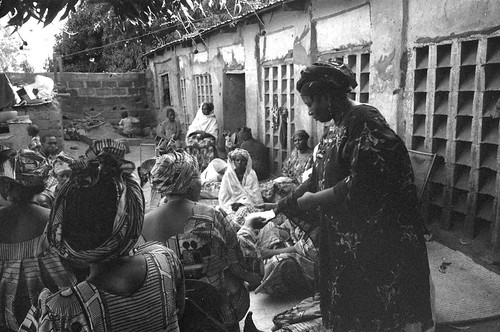We are trained as anthropologists and tend to maintain a healthy distance to social engineering, but as stewards of a vast collective memory of global cultural experimentation, it could be argued that we have an obligation to share these alternative ideas and ideologies with nonanthropologists seeking visions of a sustainable world. Like so many other populations over the past few centuries, the Tiv have discovered how their incorporation into a world economy orchestrated by general-purpose money implied loss of local control, inequitable trade relations, and environmental degradation [2007:65].Very often, policy makers and other social scientists assume the experience of Western peoples defines the boundaries of possibility (see this link for an interesting, but long, study in which the study populations used by the discipline of psychology are scrutinized...how representative of a general human species are those results?). However, as Hornborg argues above, there are other ways and other possibilities and should not be discounted out of hand as "backward" survivals from a more primitive stage of human cultural evolution.
Showing posts with label economics. Show all posts
Showing posts with label economics. Show all posts
Tuesday, March 5, 2013
Expanding Possibilities
The following quote from Hornborg's article struck me as I was reflecting on discussion in 101 yesterday.
Monday, February 27, 2012
Overlapping Economies
Just a quick note that I wanted to add to class lecture. Today, I tried to dissect the concept of an economic system by explicitly teasing apart allocation, production, distribution (and consumption..though I didn't mention it). Dissecting even further, I separated types of distribution--specifically looking at varieties of reciprocity.
In an actual society, most or all of these aspects of economies overlap. For instance, while the US economy is dominated by market exchange and a capitalist mode of production, we all also participate in household (sort of like kin-ordered) modes of production and in a variety of reciprocal exchanges.
Societies like the Ju/'hoansi simply are much more dominated by communal modes of production and reciprocal economies.
In an actual society, most or all of these aspects of economies overlap. For instance, while the US economy is dominated by market exchange and a capitalist mode of production, we all also participate in household (sort of like kin-ordered) modes of production and in a variety of reciprocal exchanges.
Societies like the Ju/'hoansi simply are much more dominated by communal modes of production and reciprocal economies.
Sunday, February 26, 2012
Rethinking the Tiv
I keep coming back to thinking about Ant 101's discussion of "Learning from the Tiv." Here's some random thoughts that have popped into my head over the weekend.
I think another way to think of Hornborg's argument is to conceive of local subsistence resources as a kind of social actor in a local community. We interact with other social beings in variable, non-universal ways. In other words, we don't treat all other humans in our lives in the same ways. When humans enter into social relationships with other humans, a myriad of specific rights, obligations and expectations emerge. You have to act toward your siblings differently than toward your parents or friends or coworkers.
Hornborg's suggestion for special-purpose, local money would force communities to have a specific social relationship with essential community resources and treat them accordingly. Groups would engage in different social relationships with the land than they would with commodities produced for distribution on the global economy. Ipads would have to be distributed and importantly, consumed, differently than subsistence resources from folks' own backyards.
I don't know if this helps any of your thinking, but it does for me.
I think another way to think of Hornborg's argument is to conceive of local subsistence resources as a kind of social actor in a local community. We interact with other social beings in variable, non-universal ways. In other words, we don't treat all other humans in our lives in the same ways. When humans enter into social relationships with other humans, a myriad of specific rights, obligations and expectations emerge. You have to act toward your siblings differently than toward your parents or friends or coworkers.
Hornborg's suggestion for special-purpose, local money would force communities to have a specific social relationship with essential community resources and treat them accordingly. Groups would engage in different social relationships with the land than they would with commodities produced for distribution on the global economy. Ipads would have to be distributed and importantly, consumed, differently than subsistence resources from folks' own backyards.
I don't know if this helps any of your thinking, but it does for me.
Subscribe to:
Posts (Atom)

